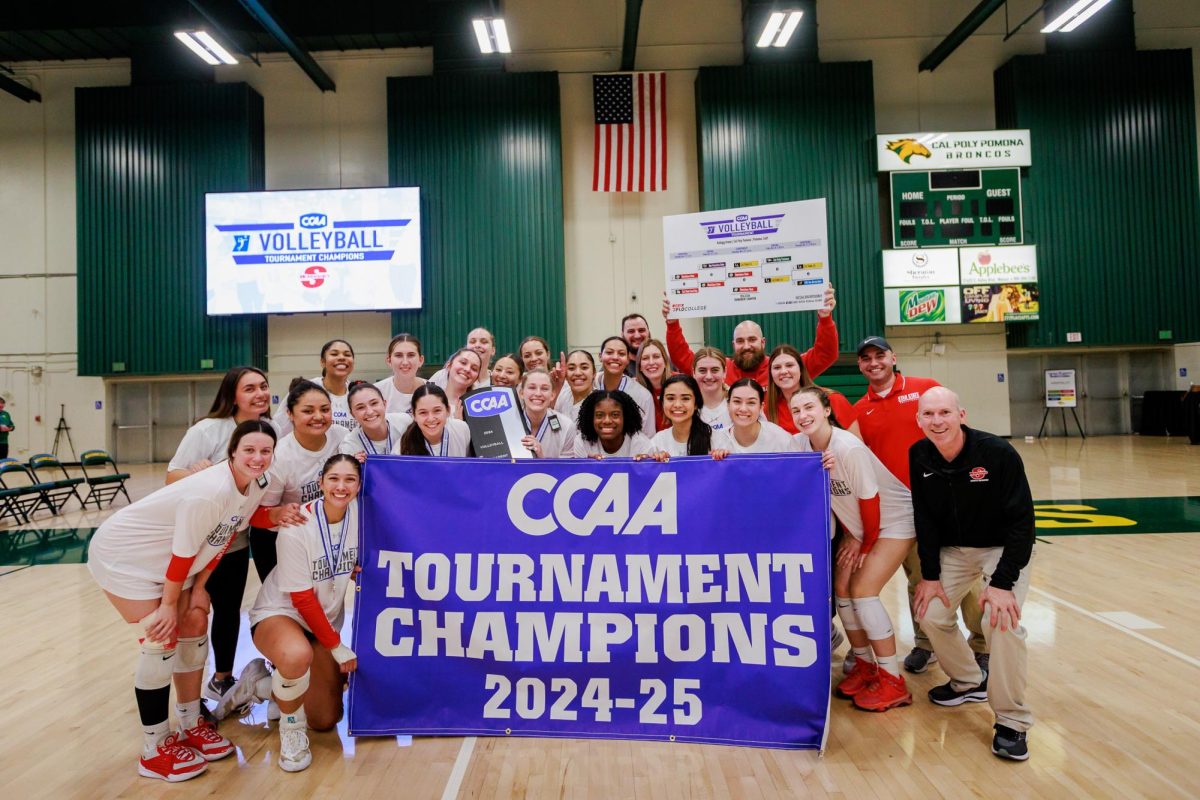Today’s Academic Senate meeting was led by Dr. Keith Nainby, Chair of the Communiction Studies Department, with the Speaker, Dr. Chris Nagel and Speaker-elect Steven Filling absent from the meeting.
The meeting kicked off with introductions from guest attendees of the Senate meeting and general announcements before discusssion of the agenda items.
Statewide Academic Senate Report:
The report of the statewide Academic Senate brought on the topic of immigration and how it affects faculty and student’s mental and physical health as well as their academic performance during the process of higher education.
New Grading Scale?:
During the meeting there was a motion to talk about a new grading policy that is currently in affect in remedial courses and has not yet been implemented into other campus courses thus far.
The motion creates a grading scale for classes that includes the following: A, B, C or no credit. Since students need to achieve a grade of C- or higher to obtain the credits from a class, any lower grade would be considered no credit rather than a D or an F.
Junior Standing for Upper GE Registration:
In the past at Stan State, students have acquired junior status when they complete 60 or more credits in their general education (GE). When a sophomore is registering for upper division classes, because they are going to finish 60 units by the end of the semester, the idea that a student needs to be a junior for those classes is generally waived as long as the “Golden Four” classes are completed.
This policy addresses the concern that sophomores are not eligible to be waived for registering for upper division classes until they are officially a junior.
A New Tool to Evaluate Instructor Performance Surfaces:
Normally, most campuses use a nationally wide used instrument for students to use to evaluate their teachers based on performance in a number of categories. Dr. Marcy Chvasta, an Academic Senator and Professor of Communication Studies, was apart of a group of professors who used this instrument during the 2018 winter session. However, no data records from that time have been released yet to measure the success of the new tool.
This instrument is only currently used at Stan State as Dr. Nainby and his team continued to evaluate ways to adjust the instrument to avoid flaws.
Dr. Paul Morgan then addressed the idea of timeliness and how students can review their professor’s efforts.
“We need to understand what students are expecting out of us. Some students expect a twenty-four hour turn around when it comes to answering emails. I get some students who will email me multiple times in a weekend and some students whose emails will get lost in my inbox,” Morgan said.
Morgan added that some students feel bad when they ask about their email and not getting a reply in comparison to some students who will send an email on a Friday and expect a reply during the weekend.
There was perhaps no resolution to the discussion of a fine line between timeliness of email replies from professors and how they can balance their personal lives.
Adding Classes Late in the Semester:
Normally a students has fourteen days to add themselves into a class after a semester has started, which includes getting an add code and filling out a form.
A new policy has brought up the fact that forms may get lost and turned in late past the consensus date for students to be added into a class, consequently affecting their financial aid. This policy will eliminate that problem, making it to where the students would only need a professor’s signature to get themselves into a class in a timely manner.
Scheduling Classes in the Same Room:
Another topic of discussion in the Senate was the scheduling of classes in the same room with less than ten minutes in between each session. It is typical for classes to be at least ten minutes apart to allow ample time for students to pack up and leave and also leaving the professor time to set up for their classes and their students to set up as well.
Dr. Al Petrosky, an Academic Senator and Department Chair for Management, Operations and Marketing, was not a fan of this policy due to his department’s responsibility for teaching three and four unit classes.
“Being from a department that teaches three and four unit courses, if we were to adhere to this policy, this would create less classes for us to teach,” Petrosky said.
Dr. Betsey Eudey, Professor of Gender Studies, replied to Petrosky’s concern by noting that if he felt there would be an issue with there being less classes because of this policy, that is not a policy problem, but an enrollment procedure problem.
Morgan added that he has had two different classes this semester with less than ten minutes of break time from the end of the previous class in that classroom.
The next Academic Senate meeting will be held on April 16th in the John Stuart Rogers Faculty Development Center (JSRFDC) at 2 p.m.
Categories:
New Professor Evaluation Tool Introduced and Student Enrollment Policy Discussed at Academic Senate
Austin Bathke
•
April 2, 2019
0
More to Discover








